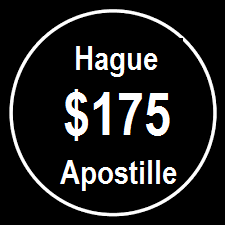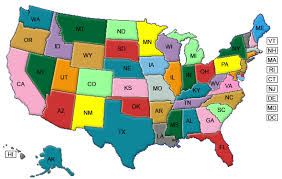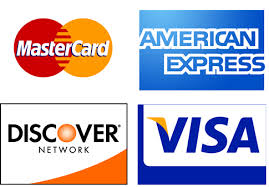 updated MAY 28, 2019
updated MAY 28, 2019
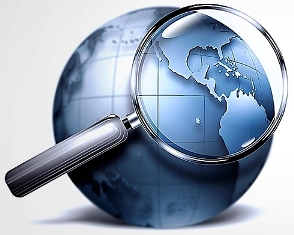 When you need your documents legalized (attested, authenticated) by a foreign embassy, can you do it yourself or do you need a professional legalization company?
When you need your documents legalized (attested, authenticated) by a foreign embassy, can you do it yourself or do you need a professional legalization company?
If your document is intended for a non-Hague country (a country that does not accept Hague apostilles), then you will need your document attested / legalzied by the embassy or consulate of this country. Here we will try to explain why it pays to use an expert legalization company...
Related search terms: "embassy legalization", "embassy attestation", "embassy authentication", "legalization by foreign consulate", "non-hague legalization", "consular seal", "how to legalize documents by embassy"
Attestation by foreign embassies: easy part
The countries that require embassy / consulate legalization are: Afghanistan, Algeria, Angola, Bangladesh, Benin, Burkina Faso, Burma Myanmar, Cambodia, Cameroon, Canada, China, Congo Republic, Congo Democratic, Ivory Coast, Cuba, Egypt, Eritrea, Ethiopia, Ghana, Guinea, Haiti, Indonesia, Iran, Iraq, Jamaica, Jordan, Kenya, Kuwait, Laos, Lebanon, Libya, Madagascar, Malaysia, Mali, Mauritania, Mozambique, Myanmar Burma, Nepal, Niger, Nigeria, Pakistan, Qatar, Rwanda, Saudi Arabia, Senegal, Sierra Leone, Singapore, Sri Lanka, Sudan, Syria, Taiwan, Tanzania, Togo, Thailand, Tunisia, Turkmenistan, United Arab Emirates, Uganda, Vietnam, Yemen, Zambia, and Zimbabwe.
The general description of the legalization process is as follows:

Attestation by foreign embassies: difficult part. Why do you need an expert legalization company?
1. The legalization procedure is different for different kinds of documents...
The process of legalizing a document for non-Hague country will depend
- on the document
- on the state where the document originated
- on the country of intended use
Some documents may require additional legalization steps to complete, e.g. the notarization and/or the county clerk authentication before the document is submitted to the Secretary of State, some documents will have to pass through the Chamber of Commerce, etc. Some documents can skip the federal level, if the foreign consulate in question has jurisdiction.
Offices of the Secretary of State in different states have different requirements to notarized documents, vital records, court documents, documents in foreign languages, etc. These requirements need to be followed, otherwise the documents will be rejected at the state level.
Different foreign embassies and consulates also have specific requirements. Even, if the document has passed the state and federal level, it can still be rejected by the embassy, or supporting documents can be requested (here is an example of legalizing a diploma by Kuwaiti embassy)
2. Most important question: does your document qualify for legalization?
![]() The first and the most important step is to make sure your document can be legalized. Please email a copy of your document for a free evaluation. We will tell you if your document qualifies for the embassy legalization, and how to proceed.
The first and the most important step is to make sure your document can be legalized. Please email a copy of your document for a free evaluation. We will tell you if your document qualifies for the embassy legalization, and how to proceed.
Then, if the document qualifies, we will ask you to mail the original document(s) to us, and we will take care of the legalization procedure. If the document is not eligible, we will advise what needs to be done.
3. Time factor!
There are three to five legalization steps involved. If you do it yourself, you will need to mail your document to three to five different places: the Office of the Secretary of State (state level), then to the U.S. Department of State in Washington DC (federal level), and then to the embassy (embassy level). If these agencies received documents by mail their processing time is much longer than if you walk-in with your document.
Foreign embassy attestation: a few examples
Here are a few examples of the legalization procedures for different documents intended for different non-Hague countries...
Example 1: Legalization of a diploma for use in the UAE
 Not all diplomas can be attested by the UAE Embassy. General requirement: your educational institution must be located in the US and regionally accredited by NEASC (CIHE), MSA (CHE), NCA (HLC), SACS (COC), NWCCU, or WASC (ACCJC-ACSCU). To show proof of regional accreditation, please visit the CHEA Database (link is external, updated 03/01/2017) of Institutions and Programs and look for your institution’s accreditation information.
Not all diplomas can be attested by the UAE Embassy. General requirement: your educational institution must be located in the US and regionally accredited by NEASC (CIHE), MSA (CHE), NCA (HLC), SACS (COC), NWCCU, or WASC (ACCJC-ACSCU). To show proof of regional accreditation, please visit the CHEA Database (link is external, updated 03/01/2017) of Institutions and Programs and look for your institution’s accreditation information.
If your document qualifies, the above legalization procedure (notary - state level - federal level - embassy) should be followed.
Read more about the attestation of degrees for the UAE
*****
Example 2: Legalization of NYC marriage certificate for use in China.
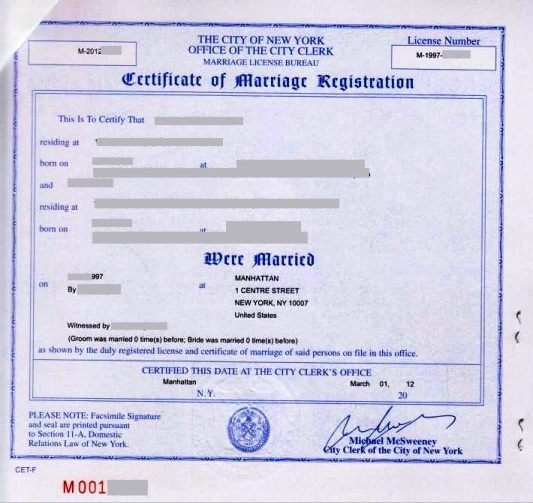 Four things to pay attention to:
Four things to pay attention to:
- the marriage certificate should be an extended certified copy
- Chinese consulates have jrisdictions, therefore, the document should be attested in the Chinese consulate in New York
- federal level (legalization by the U.S. Department of State) is not required
- supporting documents are required
Read more about the legalization of a New York City marriage certificate for China (external link)
*****
Example 3: Legalization of a Power of attorney for Pakistan
 The power of attorney should be original.
The power of attorney should be original.- The power of attorney should be properly notarized by a notary public. The notary should follow the notary law of his/her state, otherwize the document will be rejected at the state level (by the Office of the Secretary of State)
- In some states, before the power of attorney is submitted to the Secretary of State, the signature of the notary public should be authenticated by the county clerk (e.g. in Maryland, New York)
- The above legalization procedure (notary - state level - federal level - embassy) should be followed.
- Here is the most difficult part: The embassy of Pakistan in Washington DC now requires supporting documents evidencing where and how the document submitted for legalization will be used in Pakistan.


